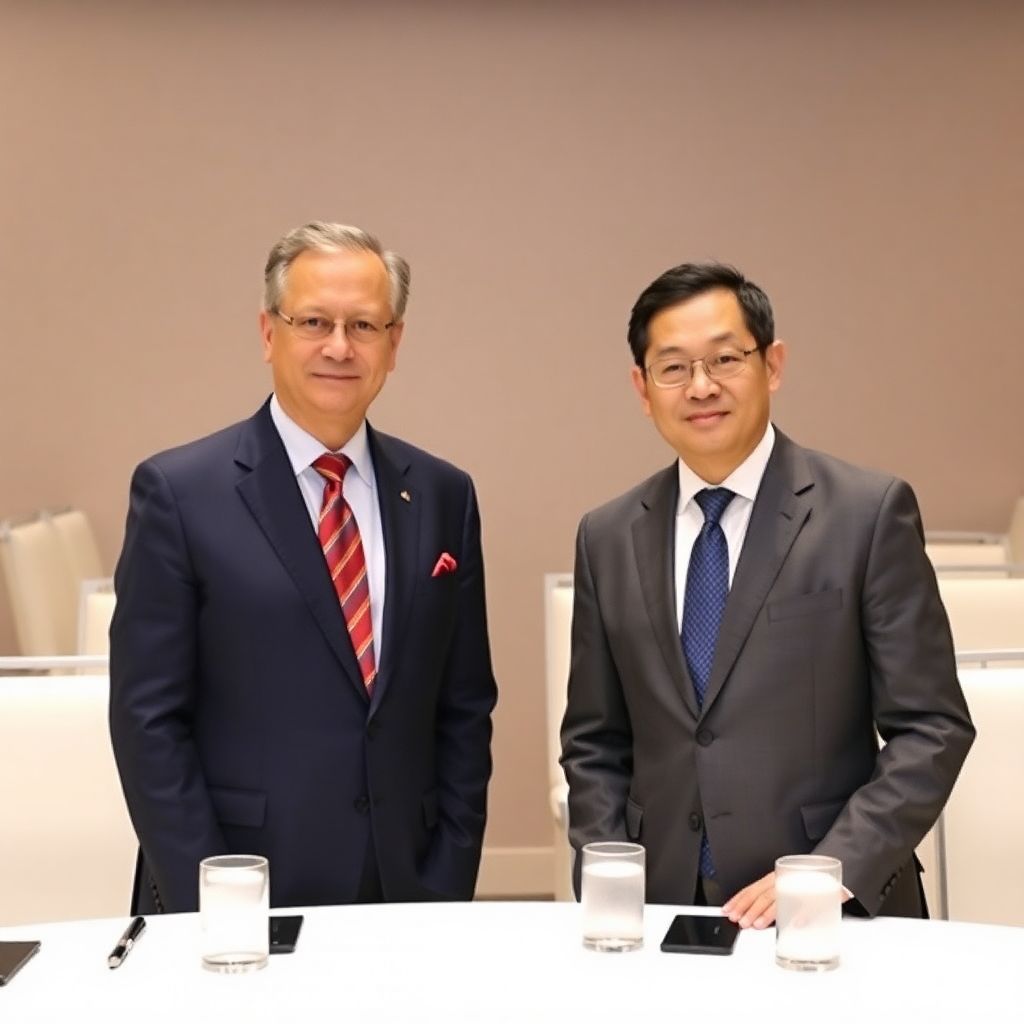At the 2025 Asia-Pacific Economic Cooperation (APEC) summit held in Gyeongju, South Korea, U.S. Treasury Secretary Scott Bessent commended Singapore for its pioneering role in digital asset integration, particularly its leadership in the stablecoin sector. Bessent emphasized the city-state’s forward-thinking regulatory and innovation strategies during his meeting with Singaporean Prime Minister Lawrence Wong, underlining Singapore’s role in shaping the global digital finance landscape.
The APEC summit, which gathered leaders from 21 member economies, focused on pressing global issues such as economic growth, energy resilience, and technological advancement. In this high-level setting, Bessent highlighted how Singapore has become a benchmark for other countries navigating the fast-evolving digital asset ecosystem.
During the Economic Leaders’ Informal Dialogue, Bessent also pointed to a surge in capital flowing into cutting-edge manufacturing and tech sectors, crediting collaborative efforts among APEC economies. He noted that these investments are helping to fuel innovation throughout the Asia-Pacific region, with Singapore standing out as a model of success.
Singapore’s prominence in the crypto space is not incidental. With a population of just under 6 million, the country has emerged as a global hub for blockchain innovation and digital finance. Data from a 2024 ApeX Protocol report showed that Singapore doubled the number of cryptocurrency licenses it issued compared to the previous year, indicating a strong institutional push toward legitimizing and growing the sector.
The same report ranked Singapore as a world leader in multiple Web3-related domains, including employment opportunities, the number of registered crypto exchanges, and blockchain patent applications. The city-state’s balanced approach—encouraging innovation while imposing clear regulatory guidelines—has positioned it at the forefront of digital finance.
In May 2024, Singapore’s central bank, the Monetary Authority of Singapore (MAS), took a decisive step to regulate offshore crypto activity. The directive required crypto firms targeting foreign markets to either obtain a license or cease operations, ensuring that companies remain accountable under Singapore’s jurisdiction even when operating internationally.
This dual strategy—fostering innovation while tightening oversight—has helped build global confidence in Singapore’s digital asset framework. It has also contributed to the country’s reputation as a “crypto-obsessed” nation. A separate ApeX Protocol study published in September 2024 found that nearly 25% of Singaporeans own digital assets, ranking the country highest in the world for crypto-related internet searches.
Singapore’s commitment to digital finance extends beyond policy and regulation. In October 2024, the city hosted TOKEN2049, one of the most influential conferences in the cryptocurrency space. The event drew global industry leaders, developers, investors, and policymakers, reinforcing Singapore’s status as a key meeting point for the international blockchain community.
Bessent’s praise comes amid his broader diplomatic tour across Asia with U.S. President Donald Trump, which included visits to Malaysia, Japan, and South Korea. The tour aims at strengthening economic and technological ties across the region, with digital innovation being a central theme of these engagements.
Singapore’s digital finance strategy also aligns with its broader national goals. The government is actively supporting initiatives in artificial intelligence, cybersecurity, and financial technology, aiming to create a resilient, forward-looking digital economy. These efforts are part of Singapore’s Smart Nation initiative, which seeks to harness technology to improve lives and drive long-term economic competitiveness.
Educational institutions in Singapore have also begun integrating blockchain and digital finance into their curricula. Universities are launching specialized programs to prepare the next generation of professionals for careers in crypto, fintech, and decentralized systems. This educational push ensures a steady pipeline of talent, further reinforcing Singapore’s leadership in the space.
In addition, the country’s financial sector has embraced tokenization and blockchain across traditional banking operations. Major banks in Singapore are experimenting with issuing tokenized bonds and exploring decentralized finance (DeFi) collaborations. These initiatives demonstrate how traditional finance and digital assets can coexist and even complement each other within a regulated environment.
As global regulatory frameworks for digital assets continue to evolve, Singapore’s model of proactive engagement, robust oversight, and innovation-friendly policies offers a template for other countries to follow. The recognition by the U.S. Treasury Secretary not only underscores Singapore’s achievements but also signals a growing consensus on the importance of digital asset integration in shaping the future of global finance.
Ultimately, Singapore’s experience illustrates how strategic policy decisions, combined with a supportive innovation ecosystem, can drive meaningful transformation in the financial sector. As the digital asset space matures, countries looking to harness its potential may find valuable lessons in Singapore’s approach—balancing growth with governance to build a sustainable digital economy.

